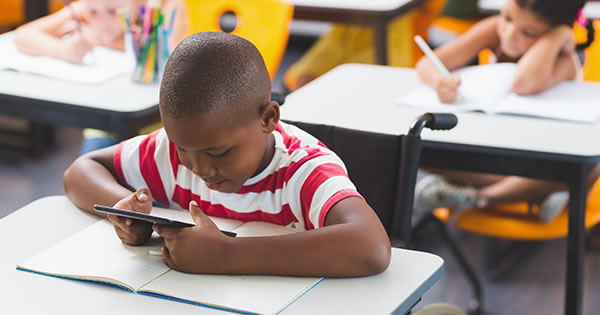The educator handbook provides concise and accurate information for educators in a user-friendly format. It covers essential topics in education, including curriculum development, classroom management, and student assessments, among others.
This comprehensive guide helps educators navigate the challenges they may encounter in their profession and offers practical strategies to enhance teaching effectiveness and student learning outcomes. It serves as a valuable resource for both new and experienced educators, supporting their professional growth and ensuring a positive learning experience for all students.
Whether you are a teacher, administrator, or education consultant, the educator handbook is an indispensable tool for understanding best practices and staying up-to-date with current trends in education.

Credit: resilienteducator.com
Mastering Your Classroom With Proven Strategies
Creating a positive and inclusive learning environment is crucial for mastering your classroom. Set clear expectations and rules to guide your students. Encourage student engagement and participation to foster a dynamic learning atmosphere. By implementing proven strategies, you can create a space where students feel respected and valued.
Use a variety of techniques to promote inclusivity, such as diverse teaching materials and activities. Incorporate collaborative learning opportunities to encourage peer interaction and cooperation. Effective classroom management techniques can ensure a productive and harmonious learning experience for everyone. With these strategies in place, you can establish a classroom where students thrive academically and socially.
Embrace these approaches to become a master educator in your classroom.
Nurturing Connection For Academic Success
Every student is unique with their own set of needs, and as educators, it is crucial for us to recognize and address those needs. By fostering a supportive and trusting relationship with our students, we can create an environment that promotes academic success.
This starts with enhancing our communication skills and actively listening to our students. By truly understanding their perspectives and concerns, we can better tailor our teaching methods to meet their individual needs. Building connections with our students also allows us to provide the necessary support, whether it’s through additional resources, mentorship, or guidance.
By consistently fostering a nurturing connection, we can empower our students to thrive academically and reach their full potential.
Enhancing Learning Experience For All Students
Enhancing the learning experience for all students involves differentiating instruction to meet diverse learning styles. By utilizing technology as an educational tool, educators can engage students in interactive and personalized learning experiences. This allows for greater student participation and understanding.
Incorporating active learning techniques, such as hands-on activities and group work, further enhances the learning process. These methods encourage collaboration, critical thinking, and problem-solving skills. By combining technology and active learning, educators create a dynamic and inclusive classroom environment that caters to the individual needs of each student.
This approach not only increases student engagement and motivation but also promotes a deeper understanding of the subject matter. With a focus on differentiation and the use of technology and active learning, educators can truly enhance the learning experience for all students, fostering a love for learning and ensuring their success.
Strategies For Positive Behavior Management
Effective behavior management is crucial for educators. Consistent consequences and rewards help establish a positive learning environment. Addressing challenging student behaviors requires a strategic approach. Restorative practices and conflict resolution techniques can be instrumental in fostering a safe and inclusive classroom.
By implementing these strategies, educators can create a productive space for students to thrive academically and socially. With a focus on proactive interventions and mindful choices, educators can effectively manage behaviors and promote a positive learning experience for all students.
Promoting Inclusion And Successful Learning
Promoting inclusion and successful learning involves understanding and accommodating individual learning needs. It requires collaboration with special educators and support staff, who bring expertise in addressing diverse learning requirements. Effective strategies must be implemented to support students with disabilities, ensuring they have equal access to quality education.
These strategies may include providing appropriate accommodations, modifying instructional materials, and utilizing assistive technologies. By embracing inclusive practices, educators can create a supportive and nurturing learning environment where all students can thrive. Inclusive education acknowledges that every student has unique strengths and challenges, and it seeks to create opportunities that cater to their individual needs.
This approach not only benefits students with disabilities but also fosters a sense of empathy, respect, and understanding among all students, promoting diversity and inclusivity within the classroom.
Conclusion
As we wrap up this comprehensive educator handbook, it becomes evident that the role of an educator extends far beyond classroom instruction. From fostering a positive learning environment to promoting inclusivity and differentiating instruction, educators play a crucial role in shaping the future generation.
By implementing effective classroom management strategies and utilizing technology to enhance teaching and learning, educators can create an engaging and enriching educational experience for their students. It is essential for educators to stay updated with the latest research and trends in education, continuously building on their knowledge and skills.
Additionally, establishing strong partnerships with parents, colleagues, and the community can further support student success. As we navigate the ever-changing landscape of education, this handbook serves as a valuable resource, providing practical tips and insights to help educators thrive in their profession.
Together, we can empower students, inspire lifelong learning, and make a lasting impact on the world.






